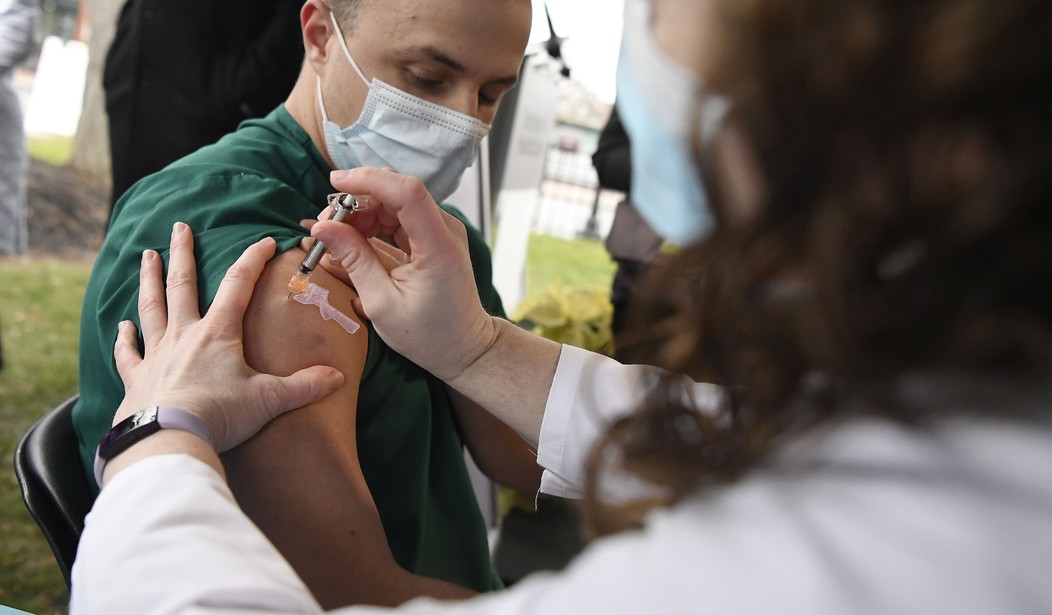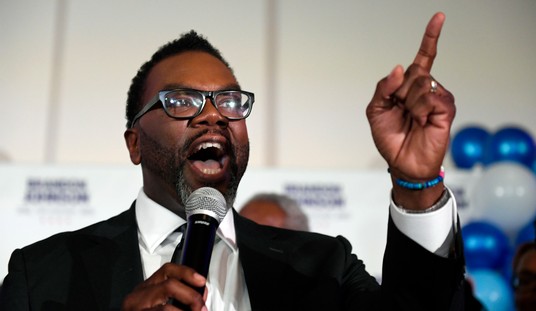Many around the United States are noting the one-year mark in the battle with the COVID-19 coronavirus. Over 525,000 Americans have died during this time and the devastating impact of the virus and the lockdowns to the nation may not be truly known for years.
But it increasingly does appear that we have hit the bottom and are improving in terms of the direct medical impacts of COVID-19. New COVID cases peaked on January 8, and deaths and hospitalizations from the virus have been on a steady decline over the past six weeks.
Experts differ on the primary cause of these declines. States continuing forced lockdowns and strict mask mandates (Calif., N.Y.) haven’t improved their situations compared with states that don’t have these rigorous policies (Texas, Fla.). Some in the medical community think the national drop-off in cases and deaths signals a broad seasonality of the disease.
We haven’t reached a good saturation of the vaccine relative to the entire U.S. population yet, but the advances in medicine to treat and immunize the population have been astounding. A slew of good news about treatments and the vaccine has come out just in the past two days.
Sometimes lost in the focus on the vaccine efforts is the fact that U.S. biopharmaceutical companies have made tremendous strides in treating patients who contract COVID-19. As was widely reported back in October, President Trump was treated for his COVID-19 infection with a monoclonal antibody cocktail made by Regeneron. Now there are four total antibody treatments either approved or pending approval by the FDA. Two of those treatments came out with some very good clinical news this week.
Eli Lilly has new data showing an even more significant clinical improvement for patients since their drug cocktail was approved by the FDA approval.
In the new results released Wednesday, Lilly said that the combination of bamlanivimab and etesevimab reduced Covid-related hospitalizations and deaths in high-risk patients by 87%. In a previous group, the treatment reduced hospitalization and deaths by 70%, results that were used to support the emergency authorization that the FDA granted to the treatment last month.
The Indianapolis-based pharmaceutical giant added that the new results showed the treatment led to statistically significant improvements on the study’s secondary goals, which included measuring a change in the viral load of patients and demonstrating resolutions of symptoms. Lilly said that the viral load reductions were consistent with what was observed in the Phase 3 results released from the previous group in the study.
GlaxoSmithKline and Vir Biotechnology released similar effectiveness data from studies of another antibody drug — VIR-7831.
A monoclonal-antibody drug reduced hospitalizations or death from Covid-19 by 85% compared with a placebo in a clinical trial, said Vir Biotechnology Inc. and GlaxoSmithKline PLC, the drug’s developers.
Based on the positive results, the companies said Wednesday they will immediately ask health regulators in the U.S. and other countries to authorize the therapy, which would add to the arsenal of Covid-19 treatments that help keep infected people out of hospitals.
Vir and Glaxo said that an independent monitoring committee recommended the study be stopped early because an interim analysis of data from 583 study subjects showed the drug, called VIR-7831, was highly effective.
“We look forward to the possibility of making VIR-7831 available to patients as soon as possible and to further exploring its potential in other settings,” said Hal Barron, Glaxo’s chief scientific officer and president of research and development.
These antibody treatments are filling the gap to help sick patients while the end goal of national immunization is still to be achieved.
The United States is making great strides toward immunization, however. The U.S. now has one of the highest per capita vaccination rates in the Western world, with the exception of Israel and the United Kingdom.
More good news on the vaccination front this week as well. President Biden has secured more doses of the one-shot vaccine made by Johnson & Johnson.
President Joe Biden said Wednesday that the United States plans to order another 100 million Covid-19 vaccine doses from Johnson & Johnson.
The president made the announcement after a White House meeting with J&J CEO Alex Gorsky and Merck CEO Ken Frazier — one week after the two companies struck a deal for Merck to produce millions of doses of Johnson & Johnson’s vaccine.
The planned purchase would bring the country’s total vaccine order to 800 million doses split among three manufacturers. But J&J and Merck are unlikely to deliver the additional 100 million shots in time to speed the vaccination of American adults this spring.
This last year has been one of the most trying in the modern history of the United States. All aspects of our society were directly or indirectly impacted by the global pandemic. Governments at all levels didn’t seem up to the task of providing protection, comfort, or reliable information. But it is hard to argue that the American researchers in the biopharmaceutical industry have emerged as one of the few heroes of the COVID-19 era.









Join the conversation as a VIP Member